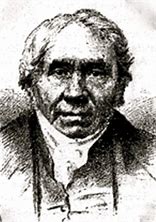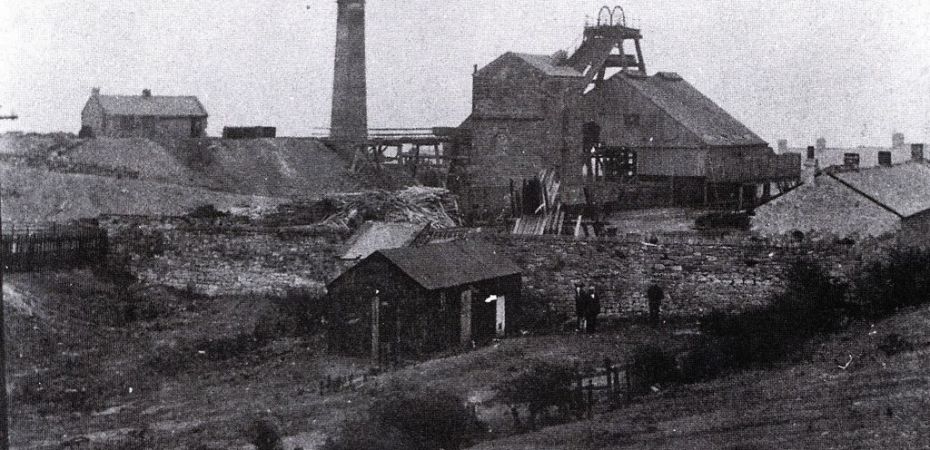Thomas Wilson (1773-1858)

There aren’t many poets who can claim a rags-to-riches story quite like that of Thomas Wilson, who rose from a humble beginnings as a trapper-boy in a coal mine to become one of the North East’s greatest dialect poets and a highly successful businessman.
Thomas Wilson was born on December 14th, 1773 in Low Fell, a small, isolated village on the outskirts of Gateshead, then located in County Durham. The Gateshead Fell as it was then known was moorland, crossed by the main Durham to Newcastle highway and sparsely populated by tinkers, gypsies and squatters with only the occasional stone house breaking up the otherwise remote landscape. It was unsuitable for much more than the grazing of cattle and sheep, but as a place where coal had been mined since the 15th century, Gateshead Fell did not escape the attention of speculators and investors eager to cash in on the burgeoning demand for the abundant mineral. By the time Thomas Wilson was born at least five working pits had been established on the Fell.

Reproduced with the permission of the National Library of Scotland. maps.nls.uk
Following in the footsteps of his pitman father, Thomas started working as a trapper-boy when he was eight-years of age, most likely at the nearby Derwent Crook colliery. Employing young children, both boys and girls, was not uncommon at this time; for not only was it a source of cheap labour for the mine owners, but the smallness of children enabled them to easily navigate the narrow, low passages underground, this being particularly useful in ‘putting’ loaded tubs or corves from the coal face to bank, where they would then be hauled to the surface.
As a trapper-boy, Thomas’ job would have been to sit by one of the ventilation doors situated along the tram-way, opening and closing it for passing coal tubs. Their shifts were generally 16 hours or more and it was a job that could be dangerous. ‘Putters’, older boys responsible for moving the corves between the coalface and bank, were paid by the tub so speed was essential. Trapper-boys too slow or too clumsy to avoid the heavy tubs would regularly sustain broken limbs or head injuries from lumps of falling coal; deaths were not uncommon. And, of course, the threat of explosion was never far away. In July, 1819 at the nearby Sheriff Hill Colliery, two men and thirty-three boys were killed in a deadly explosion of firedamp. The youngest boy was only seven years old.
“I would wish you to understand that the small education which a working young man gets at school only enables him to move in the right direction; the rest must all depend upon himself…”
By the age of 19, he had worked his way up from a trapper boy to a hewer, a job that entailed backbreaking work in the dark, cramped and dusty confines of the coalface. Because of the physical demands, his shift would have been reduced to eight or ten hours. And so it was, that during these years when he was not working or sleeping, he was able to attended a school in nearby Carter’s Well, run by a Samuel Barrass, himself a former pitman who had been forced to “gain his bread in another way” after a pit accident damaged one of his legs. There is little doubt that Thomas Wilson considered himself extremely lucky to avail himself of such an accomplished teacher. He attended day school when he was able but pursued his education primarily through Mr. Barrass’ evening class – after “the labour of the day.” In a speech to Members and Friends of the Gateshead Low Fell Reading Room in 1854, he spoke of his former teacher with a fond regard:
“He was a self-taught man … but a never-tiring industry being combined with his good natural abilities, he made himself a good mathematician, and an intelligent, well-informed man.”
Thomas would eventually leave the mines for good to work as a teacher in the nearby village of Wrekenton. But in 1799, at the age of 26, he gave up teaching for good in order to work with a Newcastle underwriter as a clerk. It was in 1803 that fortune smiled upon him when he obtained a position at the corn merchants, Losh, Lubbin & Co, also in Newcastle. He must have shown a remarkable flair, for after just four years he was offered a partnership in a newly formed company, Losh, Wilson and Bell.

(Courtesy, Newcastle City Library)
Founded by William Losh, an entrepreneur and philanthropist, the newly-formed company became the first outside of France to use what was called the Leblanc process for the manufacture of alkali, also known as soda ash; a vital chemical used in the making of glass, bleach, soap and chlorine. The factory was built on the site of the former Walker Colliery on the north bank of the River Tyne, where a briny burn provided the essential salt for the manufacture of the alkali. It eventually became a leading producer of the chemical. Their success subsequently led to a new business venture with the opening of the Walker Ironworks on land next to the factory. Over the succeeding decade, both businesses would grow to become industrial giants.
Thomas Wilson married in 1810 and built a new home, aptly named Fell House, on the site of his parent’s cottage in Low Fell. He eventually made his way into local politics and served as an alderman on Gateshead council for many years.

He began to write poetry in the 1820’s, the most acclaimed of which, The Pitman’s Pay, was first published in three sections between 1826 and 1830 in Mitchell’s Magazine. An anthology of his work, The Pitman’s Pay and Other Poems, was published in 1843 by William Douglas of Gateshead.
The Pitman’s Pay relates life in a pit-village and features some colourful characters, no doubt based on actual of Low Fell figures. It was obviously a subject with which Thomas would have been all too familiar and he tells his rich story over 344 verses in remarkable detail. Some of the terms used are now long forgotten, such as his reference to Gaudy Days for example, which he defines as follows:
“There are certain days of the year when the young men and lads refuse to work and insist on a “Gaudy Day”: for instance, the first morning they hear a cuckoo and when the turnips and peas are at maturity. They call these periods “A Cuckoo Mornin’,”, “A Tormit (Turnip) Mornin’,” and a “Pea Mornin’.” At such times they frequently adjourn to a neighbouring public house, where they enjoy themselves during a good part of the day.”
The poem was extremely popular and widely read. It was also translated into a play and performed at theatres throughout the North East.

Thomas Wilson never forgot his humble beginnings nor the education that had enabled him to find a better life away from the daily drudgery and dangers of the coal mine. He generously donated to local schools and churches and in 1841 built a school and reading room in Low Fell (left).
Throughout his life he lectured and preached, praising the benefits of a good education, while urging working-class parents to encourage their children to read books and expand their knowledge in order to escape the poverty in which many found themselves.
Thomas Wilson resided at Low Fell House until his death in 1858 at the age of 85. Some years earlier, he had reminded an audience of his devotion to education in a speech presented by his son:
“A man should learn everyday: his education should only cease with his life.”
The entire poem, The Pitman’s Pay can be seen here: https://en.wikisource.org/wiki/The_Pitman%27s_Pay
and a short abstract with word annotations can be found on this site by clicking here:
The Pitman’s Pay (Extract) https://northumbrian-words.com/2019/04/01/the-pitmans-pay-extract/)
References:
Address to Members and Friends of the Gateshead Low Fell Reading Room
Thomas Wilson, March 1854
The Pitmen’s Pay and Other Poems
Thomas Wilson, 1843
North East Dialect: The Texts
Bill Griffiths, 2000: Centre for Northern Studies, University of Northumbria at Newcastle
Tyneside. A History of Newcastle and Gateshead From the Earliest Times
Alastair Moffat and George Rosie, 2006: Mainstream Publishing
History of Low Fell
M. Hope Dobbs, 1966 (With updated information by Sid Atkinson, Chairman of Gateshead and District Local History Society):
www.gatesheadlibraries.com/gateshead-local-history-/a-history-of-low-fell
Grace’s Guide to British Industrial History
www.gracesguide.co.uk

